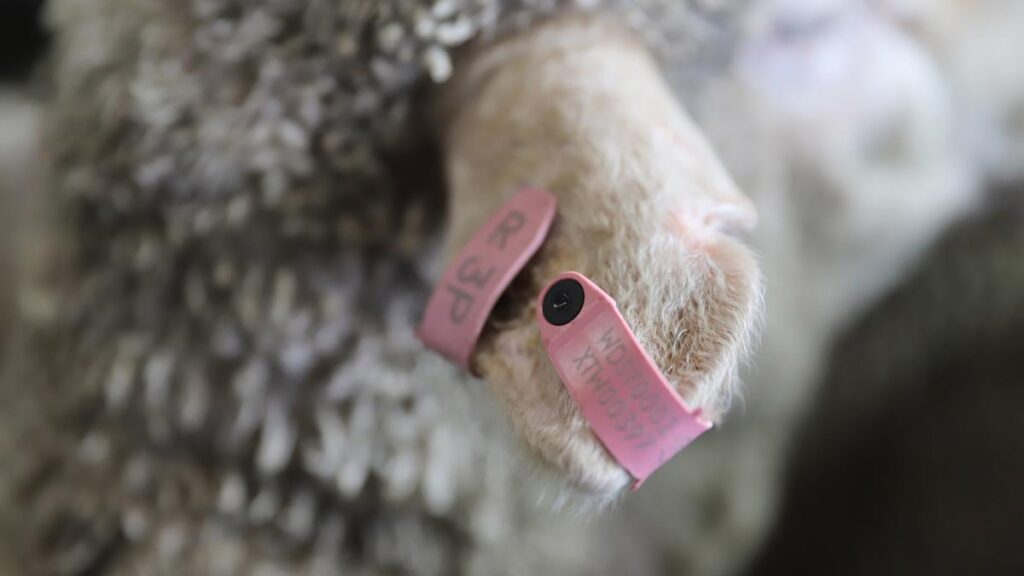
An eID tag in use.
UPDATE: The Western Australia (WA) Government has just announced an expansion and extension of its electronic identification (eID) livestock tagging program, following the sale of over 10 million tags since its launch in April 2023. This urgent initiative aims to ensure that all sheep and goats in WA are fitted with electronic tags by July 1, 2026.
The incentive program will continue, but with a 15-cent reduction in subsidies per tag. Producers will now receive a 60-cent discount on the orange 2026 year-of-birth eID tags, down from the previous 75-cent saving. This change comes as the program prepares for mandatory implementation next year, with discounts also set for pink and yellow tags used for older animals.
WA saleyards and abattoirs began scanning these electronic tags as part of a national traceability system on July 1 this year, marking a significant step towards improved livestock management and biosecurity. The Department of Primary Industries and Regional Development (DPIRD) emphasizes that this technology is crucial for swiftly addressing potential outbreaks of animal disease and ensuring food safety.
Michael Britton, DPIRD’s animal product integrity and traceability manager, praised the early adopters of the eID technology. He stated,
“This will aid a smooth transition to the new system, while enhancing traceability, which is important to reduce the impact of an emergency animal disease incident.”
His comments underline the importance of proactive measures in safeguarding the livestock industry and consumer interests.
Starting from July 1, 2026, all sheep and goats in WA will be required to carry an electronic identification tag within six months of birth or before leaving their property of origin. This initiative follows an announcement by Australia’s agriculture ministers three years ago, aimed at improving biosecurity and enhancing export opportunities.
Originally, WA farmers faced a January 2025 deadline for compliance. However, the Cook Government granted an 18-month reprieve late last year to alleviate the financial burden on farmers amid rising costs. Currently, electronic identification is mandatory for Australian cattle, while only Victoria has implemented compulsory eID for sheep. Other states and territories still rely on visual tag mob-based systems.
As the program evolves, stakeholders are keenly watching how these changes will impact the livestock industry and related sectors. The urgency and significance of these developments cannot be overstated, as they represent a transformative shift in livestock management that could redefine standards across Australia.
Stay tuned for further updates on this developing story, and share this news with others to keep them informed about the critical changes in livestock traceability and biosecurity measures.






